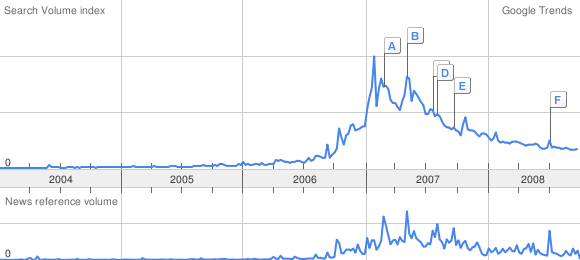So, the call for vote on the “Project membership procedures” GR was sent. Since I took part in the discussions that lead to that GR, I feel obliged to explain my point of view.
What this GR isn’t about
This GR isn’t about the merits of Joerg Jaspert’s proposal. I personally don’t think that the changes he wants to implement are what we need in Debian, but even if I fully agreed with those changes, I would still disagree with the process that led to those changes. Also, this GR isn’t about Joerg Jaspert himself. I deeply respect him and his awesome work for Debian. And I’m sure that this vote could have been triggered by decisions announced by someone else.
What this GR is about
I think that the question we are asked to vote on is:
Some people in Debian have a special role, and special privileges. Does it allow them to change important aspects of our project, without the approval of all the other developers?
Or, put differently:
Where is our limit between Doocracy and Democracy?
I’m all for listening to developers who contribute(d) a lot. I think that most people, when skimming through posts in a big thread on -devel@, will look for posts from people who did a lot of work for Debian, or who usually post interesting ideas. However, that doesn’t mean that those people should feel empowered to decide changes to important parts of our project, without first discussing those changes with all other developers, and making sure that those changes are consensual.
So, I hope that we will send a clear message that says: you are very welcome to propose changes, but please make sure that they are properly discussed within the developers before they are implemented.
Joerg’s initial mail on d-d-a, with a few s/decision/proposal/, and a final question phrased like “Any comments? Suggestions? Other ideas?”, could have been the start of an interesting discussion about how we can integrate non-developing contributors in Debian. And if too many developers disagreed, we could have had an opinion poll (it would be great to have an infrastructure for running polls inside Debian, like what Jeroen did three times a long time ago), or even a GR, like we did for Debian Maintainers.
For this actual vote, there are two similar options on the ballot (choices 1 and 2, respectively “amendment text A” and the original text on the vote page). I proposed this amendement (choice 1) because the original text is unclear, and mixes several different questions, forcing voters to answer several (secondary) questions at once, like:
- Do we recognize that there are contributors that can’t become members of the project currently, and that should?
- Do we want to thank DAM for bringing this up? (implicit question or not: … now that we are trying to release?)
- Do we want DAM to work on a new proposal?
The amendment aims at going straight to the point. And yes, it is only asking the DAMs, but if the developers ask the DAMs not to do something, and the DAMs do it anyway, we clearly have a bigger problem. I believe that the way those decisions were announced was a mistake (that unfortunately none of the people involved have been willing to admit), not that the DAMs are trying to take-over Debian, so there’s no need for a stronger wording.

